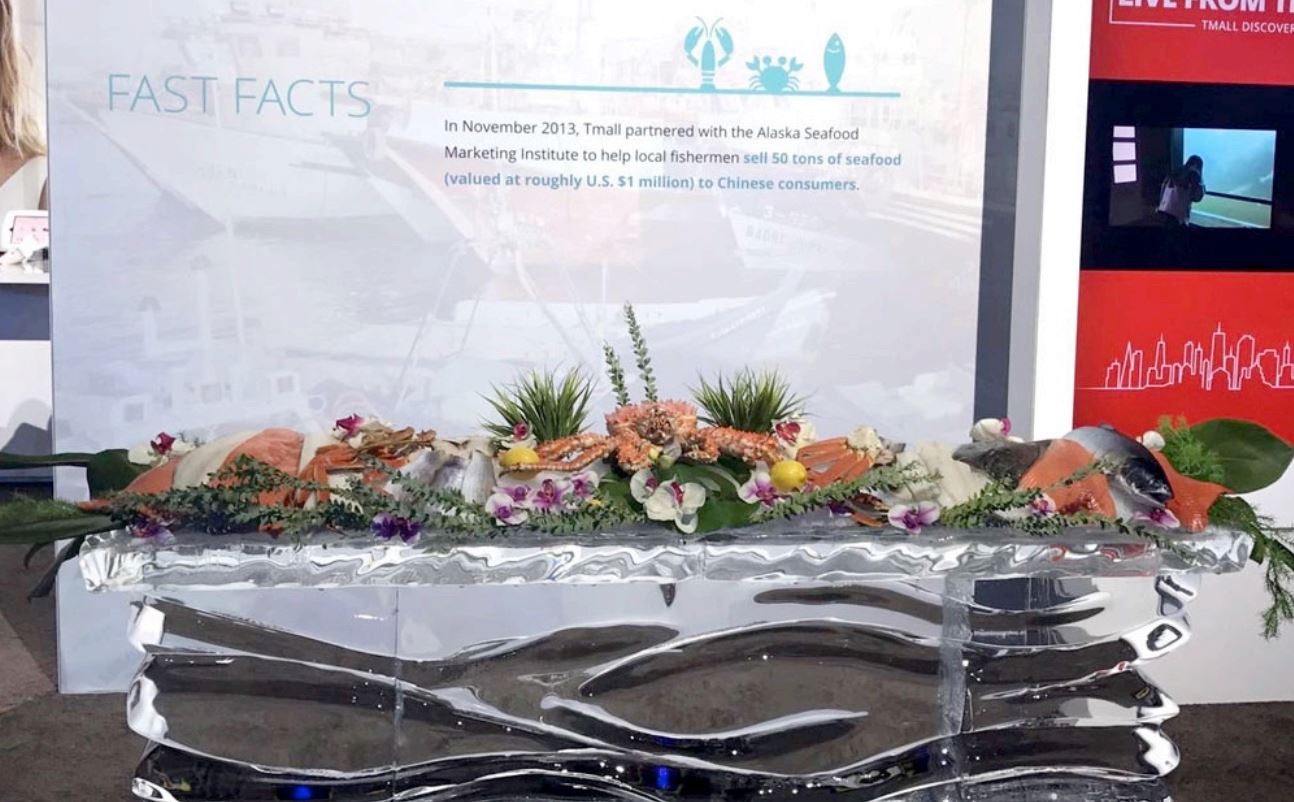The Fung Global Retail & Technology team is attending the Alibaba Gateway ’17 event in Detroit, Michigan. This inaugural conference, which attracted over 3,000 attendees, is the largest event Alibaba has hosted outside of China. Alibaba Gateway aims to help small- to medium-sized businesses in the US to better understand the China opportunity and enable them to sell into China via Alibaba’s various platforms.
The second day of Alibaba Gateway ’17 covered the many success stories of merchants selling on Alibaba’s platforms in different categories, with sessions detailing how Alibaba can help more American businesses sell on its platforms. Below, we provide our key takeaways from Day 2.
1) There is Significant Demand for American Goods in China
There is significant demand for American goods in China. According to the Boston Consulting Group, 61% of China’s consumers are willing to pay more for a product made in the US. Overall, US goods are ranked as the third-most-popular items on Alibaba’s e-commerce platforms after goods from Japan and South Korea, according to Alibaba’s data analytics. On Alibaba’s branded platform Tmall, US brands rank number two. Chinese consumers generally prefer American brands, as they believe they represent premium quality and better design, which are significant drivers in categories such as fresh produce and apparel.
 Source: Fung Global Retail & Technology
Source: Fung Global Retail & Technology
2) China Represents a Substantial Share of the Global Apparel Market Growth, Driven by Consumers in Lower-Tier Chinese Cities
China accounted for over 30% of the growth in the global apparel market in 2015. The Chinese apparel market was valued at $150 billion in 2015, and its market size is projected to reach $195 billion in the next five years, according to iResearch. Over 300,000 foreign fashion brands are already selling in China. Chinese consumers generally prefer foreign fashion brands, as they perceive them as having better quality and more fashion-forward design. The market potential for the fashion category is expected to be driven by rising demand from the lower-tier cities. There are currently 102 cities in China with a population of over 1 million. The combined spending power of the lower-tier cities is estimated to equate to roughly the same as the four tier-one cities—Beijing, Shanghai, Guangzhou and Shenzhen. Alibaba’s data indicates that consumers in the lower-tier cities demand the same fashion goods as those in tier-one cities. The fashion category is the number-one category that aspirational shoppers in lower-tier cities plan to trade up when their income increases.
 Source: Fung Global Retail & Technology
Source: Fung Global Retail & Technology
3) Fresh American Produce Has Significant Market Potential in China
Imported fresh produce is one of the four top-selling product categories on Alibaba’s platform. This is driven by the growing Chinese middle class’s aspiration to experience the American lifestyle, as well as growing concerns about food safety in China. Chinese consumers are willing to pay a premium price for imported fresh produce. Tmall Fresh, Alibaba’s fresh produce vertical, offers a 72-hour farm-to-table campaign for American cherries that guarantees delivery of fresh American cherries to Chinese shoppers within 72 hours. Chinese consumers account for 10% of demand for fresh cherries from the states of Washington, Oregon, Utah, Montana and Idaho in the past several years, according to Keith Hu, Director of International Operations at Northwest Cherry Growers.
During the Alibaba Gateway ’17 event, Alibaba announced it had formed partnerships with US fruit produce brand Driscoll’s and seafood supplier Chicken of the Sea.
4) Alibaba Provides an Ecosystem of Solutions that Enable Businesses of all sizes to Sell into China
Alibaba provides well-rounded solutions for US businesses interested in tapping into the Chinese market: e-commerce platforms (Taobao.com and Tmall/Tmall Global), payment solutions (AliPay), a logistics network (Cainiao) and sourcing (Alibaba.com). From manufacturing to distribution, Alibaba has created an ecosystem that enables businesses to conduct cross-border trade. From the sourcing side, Alibaba.com connects small brands to suppliers and manufacturers on its B2B platform. On the e-commerce side, through Alibaba’s platforms, US businesses are able to quickly tap into a significant portion of Chinese consumers. For example, Alibaba’s e-commerce platforms have 454 million annual active users, as of March 2017. All of Alibaba’s solutions are powered by data analytics which enable merchants to track their business performance in real-time.
5) Tmall/Tmall Global Provide a Premium E-Commerce Platform for Branded Products
Tmall/Tmall Global is Alibaba’s B2C e-commerce platform for branded goods. Tmall shoppers typically look for high-quality, authentic and branded goods on the platform. The platform provides a shopping experience that has a focus on brands. It offers medium- to large-sized domestic and international brands to list their products on an “online shopping mall” interface where brands generally operate their own flagship stores. Brands have the opportunity to develop a direct relationship with their customers through their flagship stores. Alibaba’s data analytics helps brands to leverage customer data from their online store operation to optimize their business strategy.
Over 7,000 US brands are currently selling on Tmall. Prominent US brands that are already on Tmall/Tmall Global include Macy’s, Costco and Gap.
For smaller emerging brands that still emphasize brand awareness, Tmall Direct Imports offers a wholesaler solution through which Tmall buys inventory from small brands and operates a “shopping mall” on behalf of the brands. This option offers emerging brands the ability to test the market without first setting up their own online store.
 Source: Fung Global Retail & Technology
Source: Fung Global Retail & Technology
6) Taobao.com Provides a Wholesale Solution for Small Businesses
Taobao.com is Alibaba’s C2C e-commerce marketplace that offers the largest selection of goods in China. Taobao shoppers are typically less brand conscious and more value driven compared to Tmall shoppers. Taobao stores are typically operated by small individual business owners.
Small brands in the US can leverage Taobao’s wholesale partners to distribute their goods to Taobao store owners. A wholesale partner takes care of the logistics and distribution of their products in exchange for a share of the profits. The California-based independent skincare brand Timeless Skin partnered with a Taobao wholesale partner to distribute its products to China at scale after discovering that the Timeless Skin products had already been listed by resellers on the Taobao platform. Timeless Skincare has now created an established business model supplying to Taobao wholesalers. Similar to Tmall Direct Imports, this model allows small brands to test the market by widely distributing their products to retail sellers without any upfront investment to set up their own e-commerce stores.

 Source: Fung Global Retail & Technology
Source: Fung Global Retail & Technology Source: Fung Global Retail & Technology
Source: Fung Global Retail & Technology Source: Fung Global Retail & Technology
Source: Fung Global Retail & Technology